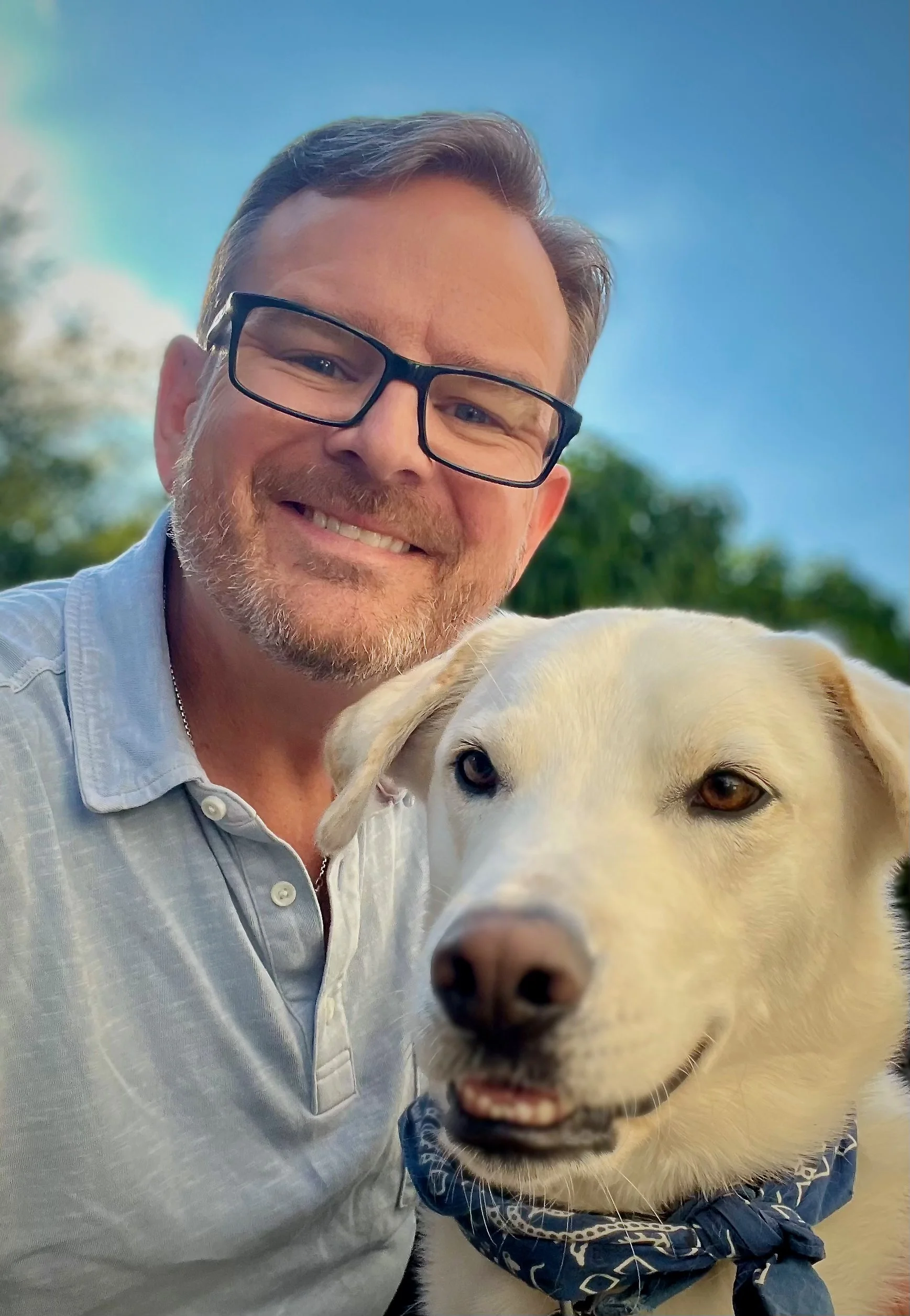Brian Shirey
Founder - Mentor - Advisor - Coach
Before becoming a certified coach and launching Key City Wellness, I successfully overcame a decades-long battle with alcohol dependency. For over 35 years my career was in technology sales and sales management. Also, I served as VP and co-founder of a health and beauty enterprise. I am the proud father of a successful and independent adult daughter. I’m also a dog dad of, Duke, a husky-labrador rescue.
I am a certified in Transformational Coaching, Alcohol Recovery, Cognitive Behavioral Therapy (CBT), Positive Psychology, and ADHD, and a proud graduate of the CCAR Recovery Coach Academy and my entire professional journey is rooted in experience.
For years, maybe like you, I silently struggled. Outwardly, I appeared successful and composed, but behind the scenes, alcohol was taking a toll on both my personal and professional life. I had no "off switch." Once I started drinking, it was hard to stop. Despite the turmoil, I convinced myself (and others)that I didn’t have a problem.
I had excuses:
“My job requires me to drink more than my clients.”
“I’m a wine connoisseur with a cellar—this is about appreciation, not addiction.”
“I’m a whiskey collector. I value high-proof bourbon. That’s not alcoholism.”
“Everybody drinks. I don’t see the problem.”
‘’Don’t worry about me. I have it under control.”
In my early thirties, I was officially diagnosed with ADHD, something I had unknowingly struggled with since I was a kid. For years, alcohol was my self-prescribed solution. I felt it slowed my busy mind, quieted my insecurities, and temporarily masked the effects of undiagnosed ADHD. In hindsight, I now understand that much of my drinking was a coping mechanism.
Over the years, I made countless attempts to quit. I read every “quit lit” book I could find, hoping for a do-it-yourself solution that would let me quietly break free. But at a certain point, willpower alone wasn’t enough. I had knowledge—but no plan, no guidance, and no support. I spoke to therapists, but downplayed the severity out of shame and fear of judgment.
I explored rehab options, but a 30-day stay felt intimidating and impossible given my personal and professional obligations. I worried it would expose me, affect my career, and damage my reputation. A 12 Step program was recommended, but I had misconceptions. I thought it was only for people who had hit rock bottom, filled with chain-smoking old men talking about how life had failed them. I still had a job, a car, a house, a relationship, a connection with my daughter—I hadn’t hit "rock bottom" yet.
Eventually, I did hit “rock bottom.” And when I did, The 12 Step Fellowship was there…and it saved me. It shattered my preconceived notions and gave me the structure and community I needed to start again.
That experience raised a critical question:
What about the people who want to quit before hitting rock bottom?
What about those who need support but don’t resonate with traditional recovery models?
The answer led me to a new path.
I spent years immersing myself in recovery, attending various in-person meetings, leading support groups, mentoring others, and studying the science and psychology behind addiction. Drawing from that journey, my coaching certifications, and my lived experience, I founded Key City Wellness.
To this day, I am a huge proponent and supporter of 12 Step programs and In-Patient Rehab and I continue to lead a weekly in-person 12 step recovery meetings. Those methods have been very successful for many people and should certainly be considered as option for recovery. However, for a multitude of reasons, they aren’t viable recovery programs for everyone.
Key City Wellness is built on the belief that recovery doesn’t have to wait until everything falls apart. We provide holistic, non-traditional coaching programs designed for individuals who seek a personalized approach to wellness, one that integrates planning, skill-building, fitness, nutrition, and emotional support tailored to their unique needs.
Recovery is not one-size-fits-all. I’m living proof that transformation is possible.
It starts with a safe space, the right tools, and someone who truly understands.




